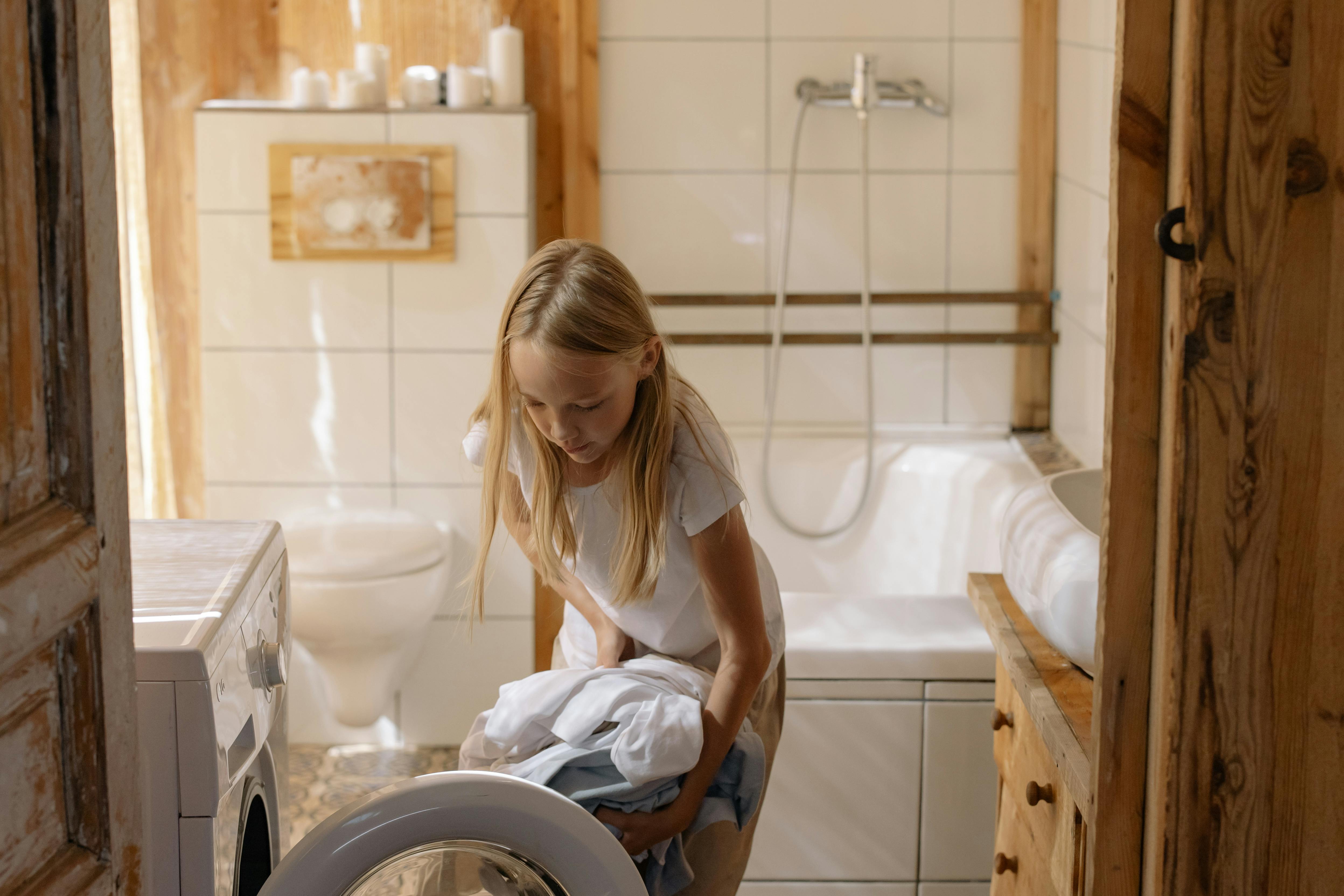Creating a home that strikes the right balance of support and independence is about building intentional systems that focus on the unique needs of your family. For single moms, it's important that your space supports your family's routines instead of fighting them, which means resisting the urge to do it all on your own.
The Bottom Line: The right systems don’t just keep your home in order, they teach your kids confidence, responsibility, and independence. By making your space work for your family, you reduce daily stress and create more room for connection, growth, and ease in single motherhood.
Structuring home organization with clear roles and responsibilities that include your kids is the difference between feeling like you're in a constant state of home management and your home being your refuge. Smart home organization systems focus on accessibility, clear expectations, and age-appropriate independence. These aren't complex overhauls, they're strategic changes that reduce the amount of daily coordination you have to do and support you being a present mom.
These practical solutions tailored for single motherhood create household management strategies that streamline your daily obligations and help everyone in your family build a strong foundation for success.
Creating Smooth Morning Routines
Morning routines that work start with smart preparation the night before. When everything has a designated place, you eliminate the daily scramble while teaching your kids valuable planning skills.
Start with a launch station near your door, bins for shoes, jackets, and backpacks keep essentials accessible and organized. Sunday night clothing prep removes daily decision-making and helps kids think strategically about their week. A hanging closet organizer with labels for each day turns this into an independent activity they can manage on their own.
Create a portable homework caddy stocked with essential supplies: pencils, glue, scissors, erasers. Having everything in one container that moves easily between kitchen table and desk eliminates supply hunts and those constant "Where's my..." interruptions.
Designing Your Space for Self-Sufficiency
When things are accessible and logical, kids naturally use them. When their spaces work with their natural height and abilities, kids develop capable routines without needing constant reminders.
The key is home organization systems that grow with your kids. Adjustable organizers work for a 5-year-old needing lower access to a teenager who needs tiered storage solutions. Success happens when the environment supports how your family's needs will change over time.
Think strategically about placement and accessibility. Position frequently used items at kid height, this eliminates the need for you to constantly retrieve things for them. Create designated spots for daily essentials that make sense for their current abilities but can adapt as they grow.
Focus on independence-building zones. The entryway should handle their gear without your involvement. Bathrooms need systems they can manage alone. Bedrooms require organization they can maintain independently.
When kids can successfully use their spaces without help, they build confidence and you gain time. The right setup teaches responsibility naturally instead of through constant correction.
Age-Appropriate Independence Milestones
Building your kids' independence happens gradually and intentionally. The key is matching expectations to their age and stage while creating systems that support their success.
Ages 4-6: Building Basic Routines Young kids thrive with simple, consistent expectations. Focus on two-step tasks they can complete independently: putting toys in designated bins, placing dirty clothes in hampers, helping with basic table setting. Visual cues work better than verbal instructions, picture charts and color-coded systems help them succeed without constant reminders from you.
Ages 7-10: Expanding Responsibilities School-age kids can handle multi-step processes and take ownership of larger tasks. They can manage complete table setting and clearing, sort laundry by color, help with meal prep basics, and maintain their own spaces. This stage benefits from clear checklists they can follow independently and designated supply stations that make their tasks efficient.
Ages 11+: Moving Toward Full Autonomy Tweens and teens should manage complete processes from start to finish: doing their own laundry, preparing simple meals, maintaining their cleaning schedules, and organizing their academic responsibilities. At this stage, their contributions become preparation for becoming young adults rather than learning exercises. This is also when they can start managing money, schedules, and appointment planning.
The goal is developing their habits and character while reducing their dependence on you as the head of household.
Smart Organization Solutions
Effective organization comes from strategic thinking, not expensive purchases. The goal is creating systems that serve multiple purposes and reduce time spent managing your home.
Start with what you already have. Repurposing items you own saves money while solving immediate problems. Before buying anything, walk through your home to see what containers, furniture, or storage pieces could serve new purposes. You likely already have storage you can use.
When you do buy, go for multifunction. Cube organizers transition from toy storage to book displays to bedroom organization as kids grow. Over-the-door organizers adapt from diaper supplies to art materials to sports equipment. Pegboard systems create customizable zones that evolve with your family's routines.
The strategy is building flexibility into your choices. Instead of trendy or lower quality solutions, invest in quality solutions that will last as your family grows and reduce the need for future replacements.
These organization approaches will help you create a home environment that pours into your family. When everyone meaningfully contributes at home, it directly impacts your kids' upbringing and your experience as a single parent. Home organization at every age supports development, confidence, and freeing up mental space for what matters most to your family.
Time to get organized: Let's talk home: What organization system has been a game-changer for your family, and what are you planning to tackle next?









.jpg)








